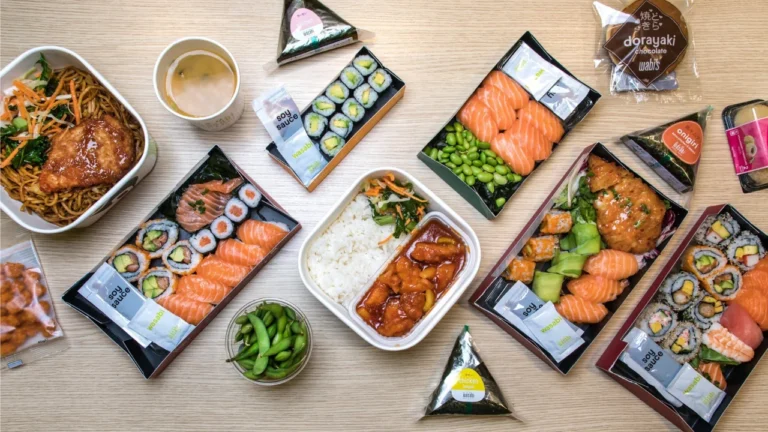Behind the Scenes: What Catering Companies Don’t Want You to Know About Food Hygiene
Food hygiene is a critical aspect of any catering business. It ensures that the food served is safe for consumption and free from contaminants that could cause illness. While many catering companies promote their hygiene practices, there are often hidden aspects that they prefer customers not to know about.
Understanding these can help consumers make informed choices. This article will delve into the top things catering companies might not want you to know about food hygiene.
Extent of Staff Training
Staff training in food hygiene practices is essential for ensuring the food’s safety and cleanliness. However, not all catering companies invest sufficiently in food safety training for their staff.
While they may claim to have well-trained employees, the reality can be quite different. Some companies provide only minimal training, covering the basics without delving into the detailed practices necessary to maintain high standards of hygiene. This lack of comprehensive training can lead to mistakes in food handling and an increased risk of contamination.
For instance, staff members might not be fully aware of the proper food storage methods, the importance of regular hand washing, or the need to clean and sanitize surfaces thoroughly. That’s why consumers should always inquire about the training programs that catering companies implement and seek out those that prioritize comprehensive food hygiene workshops.
Cleanliness Behind the Scenes
While the dining area of a catering service might appear spotless, the kitchen and storage areas where food is prepared and stored can tell a different story. Catering companies may put significant effort into maintaining the cleanliness of the areas visible to customers while neglecting the spaces behind the scenes. This disparity can result in unhygienic conditions where food is at risk of contamination from dirty surfaces, unclean equipment, and improper storage practices.
Regular inspections and thorough cleaning protocols are crucial for maintaining high hygiene standards. However, some companies cut corners to save time and money, resulting in kitchens that are not as clean as they should be.
It’s important for catering companies to adhere to strict food sanitation courses to ensure that all areas, not just the visible ones, are kept in pristine condition. Consumers should be aware of this and ask about the company’s cleaning schedules and protocols to ensure they are choosing a service that prioritizes hygiene throughout their entire operation.
Ingredient Handling
The way ingredients are handled from the moment they arrive at a catering facility to the point they are served is crucial in preventing foodborne illnesses. Some catering companies may not follow best practices when it comes to ingredient handling, leading to cross-contamination and other hygiene issues. For instance, raw and cooked foods should be stored separately to avoid cross-contamination, and perishable items must be kept at appropriate temperatures to prevent bacterial growth.
However, not all companies adhere to these guidelines strictly. Improper storage and handling can result in harmful bacteria contaminating the food, posing a significant health risk to consumers. Ensuring that all staff are trained in food handling can mitigate these risks by teaching them the correct procedures for storing, preparing, and serving food.
Use of Expired Ingredients
Some catering companies may use ingredients past their expiration date to cut costs and reduce waste. While this practice can be financially beneficial for the business, it can have severe health implications for consumers. Expired ingredients can harbor harmful bacteria and toxins that are not always detectable by taste or smell, leading to foodborne illnesses.
It’s crucial for catering companies to follow strict guidelines regarding the freshness and quality of their ingredients. This includes regular checks of expiration dates and ensuring that all ingredients are used within their safe consumption period. Training programs emphasize the importance of using fresh ingredients and the risks associated with expired ones.
Pest Control Issues
Effective pest control is essential for maintaining a hygienic environment in any food service operation. However, some catering companies may have inadequate pest control measures, leading to infestations that can contaminate food and kitchen surfaces. Pests such as rodents, insects, and birds can carry harmful bacteria and pathogens that pose significant health risks if they come into contact with food.
Catering companies must implement regular pest control measures and conduct frequent inspections to ensure their facilities are free from pests. This includes working with professional pest control services and maintaining clean and well-sealed storage areas.
Choose Catering Companies with Rigorous Hygiene Standards
Understanding the hidden aspects of food hygiene in catering can help consumers make more informed choices and prioritize their health and safety. When selecting a catering service, it’s essential to ask about their training programs, cleaning protocols, ingredient handling practices, and pest control measures. Look for companies that invest in food hygiene certification for their staff, as these indicate a commitment to maintaining high hygiene standards.
Those in the catering industry or anyone interested in learning more about maintaining high standards of food hygiene should consider enrolling in the Level 2 Food Hygiene Catering course. This course provides comprehensive training on essential food hygiene practices, ensuring that you are well-equipped to handle food safely and effectively. Investing in such a course can significantly affect the quality and safety of the food you prepare and serve.







